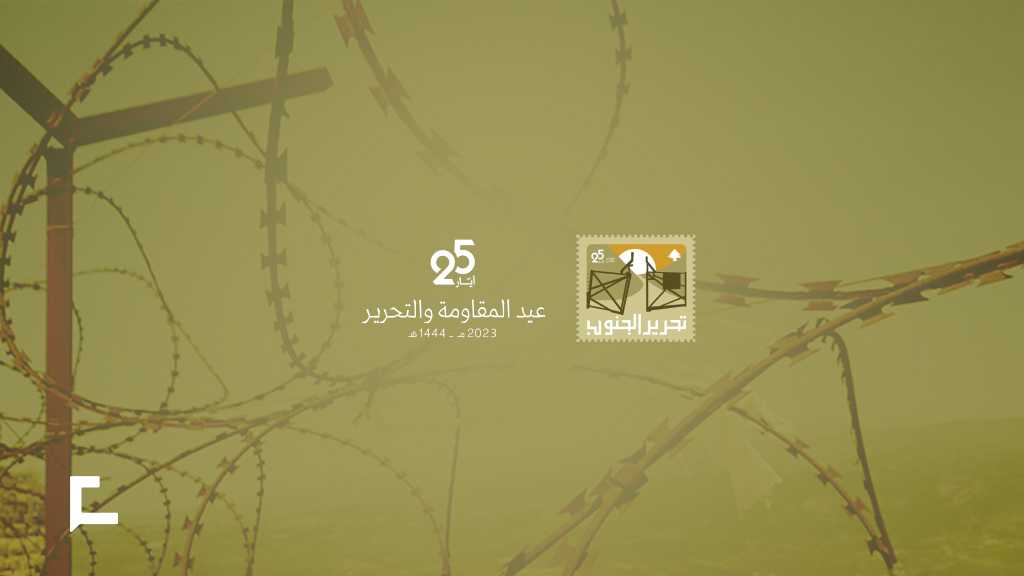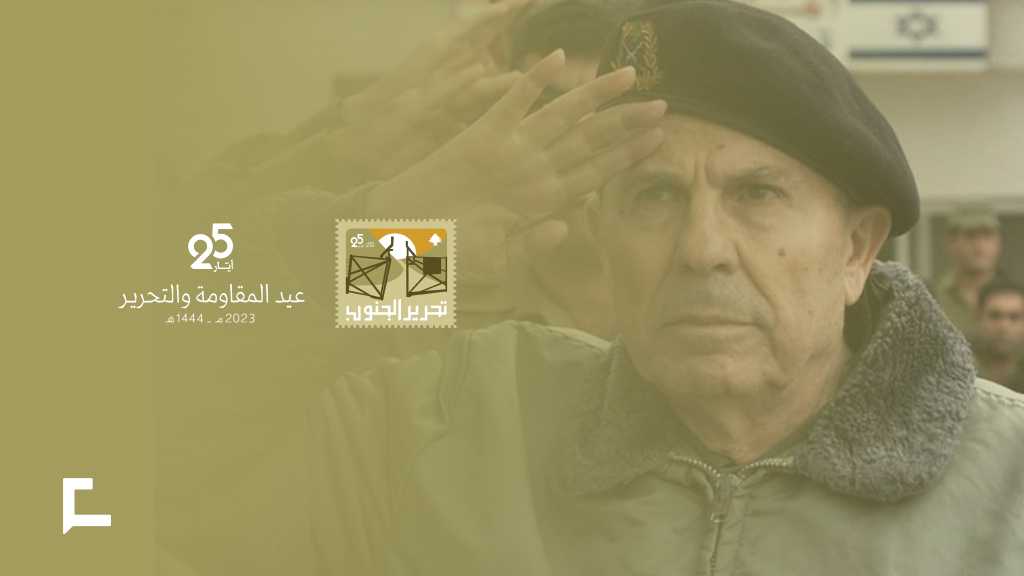
Interview: Islamic Resistance commander sheds light on attacks that drove "Israelis" out of Lebanon

Interview: Islamic Resistance commander sheds light on attacks that drove "Israelis" out of Lebanon
By Mirella Hodeib
Daily Star staff
Monday, May 25, 2009
Interview
BEIRUT: "Israel" did not pull out of south Lebanon in May 2000 in order to comply with UN Security Council Resolution 425, as Tel Aviv claims, but was rather forcefully ousted, according to the account of a Hizbullah military commander who took part in operations targeting "Israeli" troops prior to their withdrawal.
"It was the resistance's consecutive and effective hits and large casualties that drove "Israelis" out and forever," said the military commander, who spoke to The Daily Star on condition of anonymity.
In 1999, Ehud Barak won a sweeping victory in "Israeli" elections on a campaign promise to leave Lebanon in accordance with Resolution 425 within a year. After assuming office in July that year, the then-premier began negotiations with Syria aimed at reaching an agreement for a coordinated "Israeli" pullout. The negotiations broke down before a deal was achieved, but Barak went ahead with his plans and carried out a unilateral withdrawal by May 25, 2000, six weeks ahead of his stated July 7 deadline.
Almost nine years after the "Israel" pullout, a Hizbullah commander revealed to The Daily Star, in a rare interview, details of the resistance's operations in south Lebanon that he says forced the "Israelis" to rapidly leave the country, even though they had been unable to reach a deal to do so on their own terms.
The commander said his party decided to divulge the information at this time, "because people have the right to carve in their memories what led to the liberation of south Lebanon."
More specifically, Hizbullah revealed details of the Aramta operation in April 2000, which according to the commander heralded the liberation of all of south Lebanon.
On April 4, 2000, Hizbullah fighters carried out an early morning raid on a heavily armored "Israeli" outpost in the southern village of Aramta, reducing it to rubble.
"The Aramta was one of the key outposts in south Lebanon during the "Israeli" occupation; it was sort of a filter zone," the 40-something fighter explained.
According to the commander, Aramta was a "sensitive area." He explained that the village served as a vital link between the southern zones of Jezzine and Marjayoun. It is located in the Jabal al-Rihanne area, known for its elevated highlands and rugged geography.
"Israeli" troops were heavily present in the Aramta area, and "Israeli" MK surveillance drones hovered in the skies of the village around the clock, the fighter recalled.
"It was clear for the "Israeli"s that if they lose Aramta and the Jabal al-Rihan region, then it would be impossible for them to keep a presence in Marjayoun," the commander said.
"We took a decision to destroy the Aramta outpost on their heads," he added.
To distract the enemy's attention, Hizbullah began shelling a nearby "Israeli" outpost, the infamous Bir Kallab, on the same day they were planning to conduct the Aramta operation. Bir Kalab was identified for years with "Israel's" occupation and an outpost that kept on shelling surrounding resistance areas.
"We also shelled 29 other outposts as a sort of camouflage," he said.
"Over the past few years we had intentionally focused our attention on launching attacks against the Bir Kalab without making any real attempts to take it over," the commander said.
The "Israelis" had come to think that Bir Kallab was Hizbullah's real target and that the party was struggling in vain to capture it, he said. On April 4, 2000, the "Israelis" sent reinforcement to Bir Kallab instead of the real target, which was Aramta.
"By the time the "Israelis" realized that Aramta was under attack our mission was complete," he added.
The commander also recalled that in Aramta, which was closely watched by "Israelis", there was "direct contact between us and the "Israelis" and this enabled our fighters to gain tremendous experience."
The commander, a tall man with imposing features, spoke about the "unusually high" morale that characterizes Hizbullah fighters.
He said fighters wanted to shatter myths about "Israel", particularly the notion that the state is invincible.
"We used to sneak in and out several times a day, and later on we made sure to destroy an armored vehicle and bring it to our zone every time we would go in," he said. "This was humiliating to the "Israelis"."
While preparing for the attack on the Aramta outpost, the commander said groups of 12 fighters would deliver canons to specific posts surrounding Aramta, being careful not to make any suspicious moves.
"This was our way of telling them that their MKs, which were worth millions of dollars, were useless, and that their guards were being paid for doing nothing and that their whole system had become worthless," he said.
According to the commander, military operations needn't rely solely on sophisticated technology. In Aramta for example," he said, "we stuffed soccer balls with bombs so as to have them roll easier to their targets."
"Creativity and old tactics or weaponry can prove to be very effective," he said, citing an ancient German military tactic which stipulates that a strong opponent with sophisticated capabilities should be challenged with traditional tactics and weapons so as to confound them.
A truck loaded with some 5 tons of TNT was capable of pulverizing the fortified cement outpost in Aramta.
Asked whether the Aramta operation carried the signature of Hizbullah's Imad Moghnieh, the officer conceded that the slain top military commander had played a role in planning the attack.
However, he categorically rejected the assertion that Hizbullah was weakened by Moghnieh's assassination.
"Hizbullah does not rely on one person, Hizbullah's true value is that it relies on teamwork," he said, adding that vacant positions are automatically filled.
"I am not saying that the replacement will be as good from day one, but they will eventually learn and pass their knowledge to others," he said.
Mughnieh was killed when a bomb planted inside his car exploded in a suburb of Damascus on February 12, 2008.
Speaking about Hizbullah's general strategy of attack against "Israel", the officer said his party had "a clear-cut strategy, which consists of carrying out consecutive and repetitive strikes so that the enemy would come to realize that its venture in south Lebanon was falling apart."
"A policy of patience and endurance is also key to our success," he added.
Hizbullah's strong point, according to the fighter, is that it could easily hide its strengths and capacities, unlike "Israel" whose "capabilities and strength are very big and known to all."
He said he would have no problem surrendering his group's weapons, "once Lebanon is strong enough to protect its territories and citizens."
Echoing Hizbullah leader Sayyed Hassan Nasrallah, the commander said the resistance in south Lebanon thrived "after the state failed to shoulder its responsibilities in fighting the "Israeli" occupation."
"We don't have a hobby of conducting military operations or engaging in futile wars ... We are normal people who want to live a normal life and preserve our dignity," the fighter said, as he tore up a piece of paper on which he had drawn sketches of the posts his troops had attacked and liberated. The Daily Star was refused a request for a copy of the sketches.



